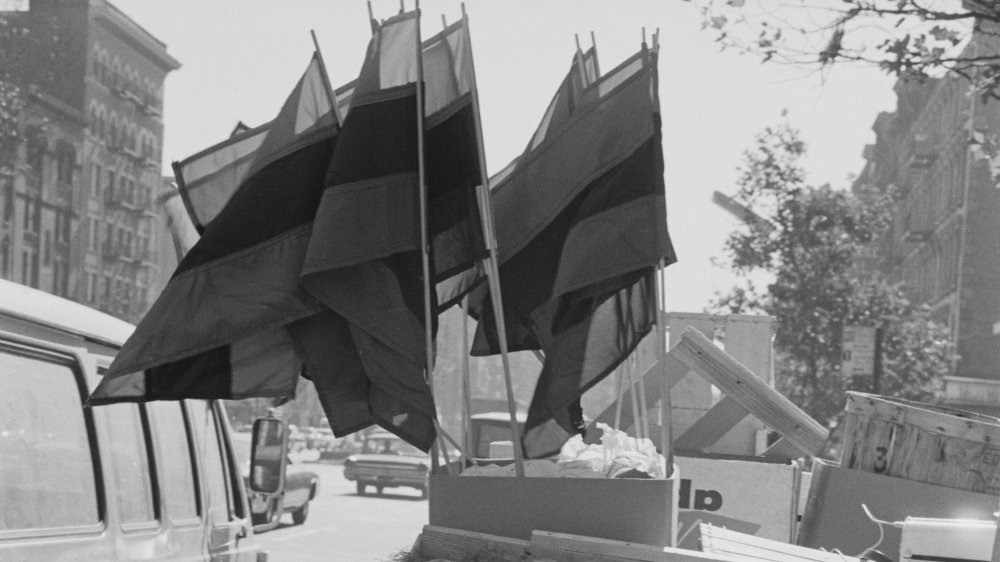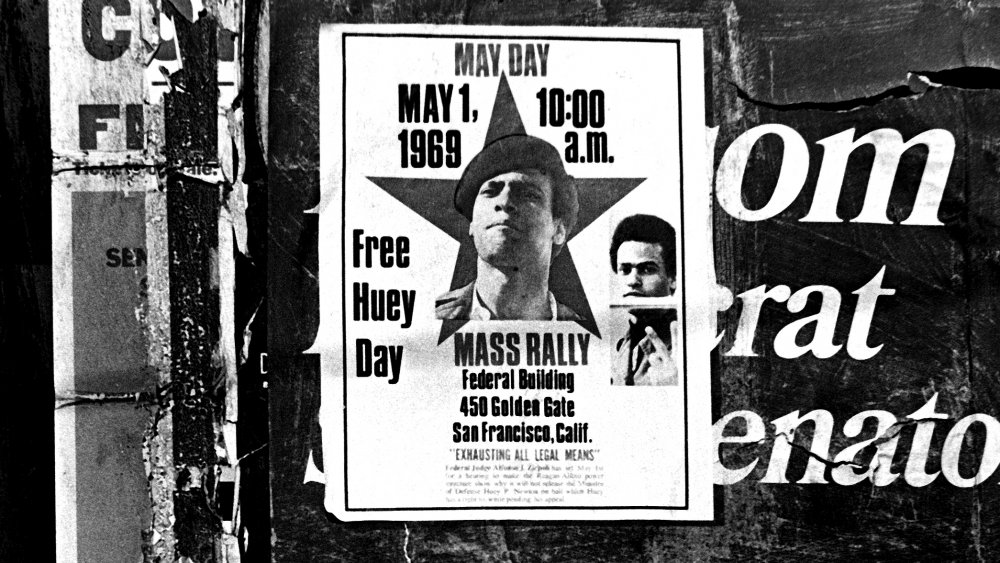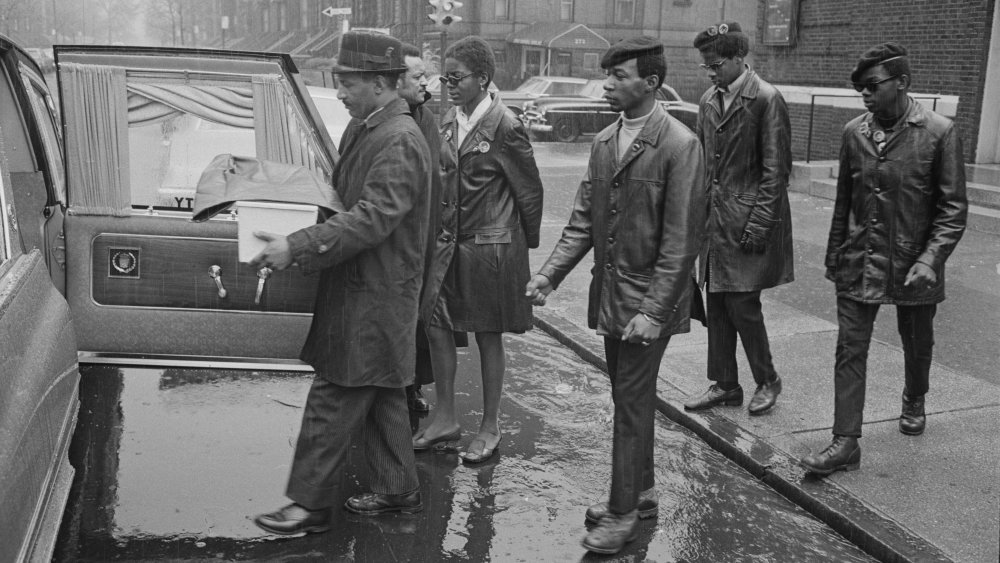The Little-Known Truth About Black Panther Activist Fred Hampton
Since August 6, a trailer for the film Judas and The Black Messiah has been picking up views on YouTube. Originally titled Jesus Was My Homeboy, the biopic of Fred Hampton's life stars Daniel Kaluuya and Lakeith Stanfield as activists Fred Hampton and William O'Neal. The film deals with the period when the FBI was circling Hampton, the agency's eventual raid of the Black Panther hideout, and the assassination of the revolutionary activist. According to Entertainment Weekly, the film — produced by the director of Fruitvale Station, Black Panther Ryan Coogler, and Sorry to Bother You's producer Charles King — takes some dramatic liberties with the already dramatic story, to focus more on the relationship between O'Neal and Hampton.
In 1966, FBI Agent Roy Martin Mitchell (played by Jesse Plemmons) sat down in Cook County Jail to offer O'Neal a deal. O'Neal had been arrested for stealing a car, but if he cooperated with Mitchell, Mitchell would forget about the charge. O'Neal agreed. As the Chicago Tribune later wrote, when O'Neal was asked in 1984 about how he looked back on these years, he responded, "If you ask me if the gains outweigh the loses, I think so. I think if I look back at myself ... I say, if I had never met Mitchell I would probably be in jail or dead." O'Neal's main task: ingratiate himself with the Illinois Chapter of the Black Panther Party, led by Fred Hampton.
The Black Messiah
The FBI's sights had been set on Hampton for a while. As the National Archives charts, the charismatic Hampton had by the age of 20 already completed a successful stint with the National Association for the Advancement of Colored People (NAACP) to join the Chicago Chapter of the Black Panther Party and rise to the position of chairman of the Illinois Chapter.
Hampton established the Free Breakfast for School Children Program in Chicago, to feed impoverished kids, and negotiated peace among the various gangs. As documented by PBS, Hampton also was the first to propose the idea of the Rainbow Coalition, which Jesse Jackson and Barack Obama would co-opt as Rainbow/Push. A 1969 speech given by Hampton shows that a lot of his radical vision was lost over the years: "We've got to face the fact that some people say you fight fire best with fire, but we say you put fire out best with water. We say you don't fight racism with racism. We're gonna fight racism with solidarity. We say you don't fight capitalism with no Black capitalism; you fight capitalism with socialism."
Even during Hampton's tenure with the NAACP, which began when he was 16, he was incredibly successful, seeing their membership grow from 100 members to 700 and organizing a protest that changed rules which barred Black girls from becoming homecoming queens. He seemed like someone who could change the world.
The Judas
The FBI certainty pegged Fred Hampton as a possible threat to America's order. As documented by the 1978 trial, William O'Neal walked into the Black Panther's office in November 1968 to enlist. O'Neal quickly became Hampton's local chief of security. Through O'Neal, the FBI attempted to disrupt the Black Panthers' plans, such as telling the leader of the Rangers, a local gang with whom the Black Panthers had proposed to merge, that the Black Panthers had contracted a hit on him.
The passing of 1969 saw growing tensions between the Black Panthers and the Chicago Police, so on November 19, 1969, Mitchell and O'Neal met and constructed a floor plan of Hampton's apartment. The police raided the apartment in the early morning of December 4, 1969. O'Neal had drugged Hampton the evening before; when the police burst in with guns blazing, Hampton was certain to be among the casualties. The police broke in, firing 82 to 99 shots against the Black Panthers' resisting single shot, and killed Fred Hampton in his sleep.
Years later, a member of the staff who produced the series Eyes on the Prize told the Chicago Tribune his impression of William O'Neal: "In the film he said he felt very bad about his role in infiltrating the Panthers. ... He felt remorse about the deaths. ... But he felt the Panthers were a threat. He seems to have thought about himself as a law enforcement person.”


